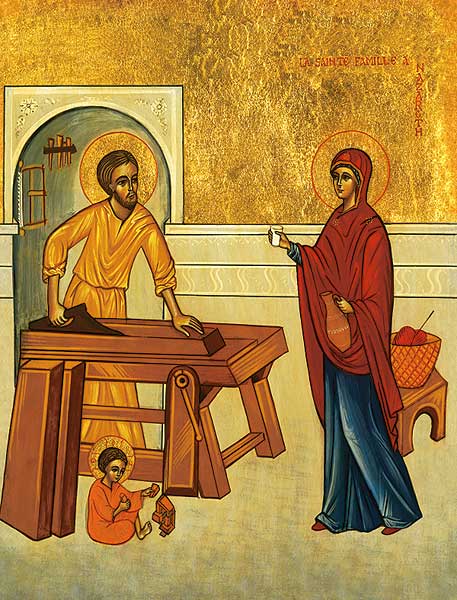Fausto Gomez OP
For St Thomas Aquinas, theology and spiritual theology are “one and the same thing.” Similar is the stand of St Bonaventure. For both doctors of the Church and the traditions they represent, theology is one, not yet divided at their time between dogmatic and moral theology. Spiritual theology permeated the different theological treatises such as the Trinity, Creation, Christology, grace and the sacraments, prayer, etc. It was – and is – more closely connected with moral theology or Christian ethics.
After Thomas and Bonaventure, and particularly since the Enlightenment, moral theology and spiritual theology became separated theological disciplines. By the 17th century, theology became divided into various other parts due to practical reasons: to make its study and exposition easier. Then some authors started to distinguish between ascetical and mystical theology on one hand, and moral theology on the other. Both, however, were still united. While the latter dealt mainly with the commandments and virtues as obligatory, the former with the counsels and the perfection of Christian life beyond the commandments
Up to the first half of the 20th century, spirituality was still usually studied under moral theology with different names: devotion and piety, ascetical and mystical theology, theology of Christian perfection, and finally spiritual theology or spirituality.
In the Constitution Lumen Gentium, chapter V (nos. 39-42),Vatican II stresses the universal call to holiness: every Christian is called to holiness, to a holy life which is spiritual and moral. In its Decree on the formation of priests, Optatam Totius (no. 16), the Second Vatican Council inextricablylinks moral and spiritual theology with the mystery of Christ, and underlines the obligation of Christians “to bring forth fruit in charity for the life of the world.” Therefore, “Vatican II’s teaching on spirituality has two fundamental assertions: the call of all Christians to holiness and perfection, and the fact that the answer to this call to holiness comes in and through our life in the world” (Charles E. Curran). After the Second Vatican Council, the theology of Christian perfection is usually called spiritual theology.
In our time, in the Third Millennium, spiritual theology is an autonomous theological science or discipline, a special field of study developed in a multidisciplinary, dialogical and ecumenical perspective. Today theologians generally agree on the close link between spirituality and other branches of theology, particularly with moral theology. Let us add that in its Constitution on the Liturgy, Sacrosanctum Concilium (no. 16), Vatican II underlines that the sacred liturgy must be thought “under its theological, spiritual, pastoral and juridical aspects.”
Christian life is a spiritual and moral journey to complete happiness with God. It is a journey by steps of love and the other virtues that love – as the form of all virtues – vivifies. Virtues are rooted in divine grace and make people flourishing human beings and Christians: the theological virtues connect us directly to God and the moral human virtues, with other human beings and creation. How may one separate really moral and spiritual theology in Christian life which is one, moral and spiritual at the same time? There is “substantial identity between spirituality and morals. The two dimensions are born from the theological life; they are fed by it and converge towards it. The theological life represents the unity of experience in Christian life” (Marciano Vidal).
After Vatican II, some moralists separated too much moral theology from spirituality. In this perspective, moralist S. Pinckaers affirms: “Moral theology has become the domain of obligations and legal imperatives and has set aside the question of happiness and perfection. Hence, it especially separates itself from spirituality and from parenesis, which is a form of exhortation.” He criticizes this modern development: “According to St Paul, the moral life is a form of spiritual worship.” Spirituality speaks of becoming holy, and this requires moral living. Moral life and spiritual life coincide essentially, and fertilize each other towards the same end: God’s eternal love and peace. For St Alphonsus Maria de Liguori, the goal of life – as found in all his writings – is to lead people to holiness by the path of love. It is not proper therefore to continue speaking of a sort of two-tiered view of Christian life: moral life for ordinary Christians and spiritual life for some extraordinary souls.
Both – spirituality and moral theology – are necessarily linked to each other, closely interconnected, but are two different “sensibilities,” or tones, or accents: two branches of theology. Regarding spirituality, moralist Marciano Vidal points out its specific traits: verticality, transcendence and interiority. On the part of moral theology, he underlines horizontality and exteriority. Some other authors argue that the main difference between moral theology and spirituality is that while the former puts the emphasis on rationality, the second, on faith. In both, however, what matters most is faith: we are talking of moral theology or Christian ethics, and of spiritual theology or Christian spirituality. Moreover, while moral theology is more concerned with a life of virtues (always grounded on divine grace and perfected by the Gifts of the Holy Spirit), spiritual theology deals more with a life of union with God. Thus, we study the mystics more deeply in spiritual theology. What matters most, however, in moral as well as in spiritual life, is charity, and the growth of charity, although we may say with other authors that while moral theology underlines the first two stages of Christian life (the purgative and the illuminative) spirituality stresses the third (the unitive).
With other theologians, we believe that still today moral theology and spiritual theology continue to be deeply interconnected. Bot “shape and reshape one another… While we might want to distinguish the respective interests of spirituality and morality by focusing spirituality on our relationship to God, and morality on who to be and how to behave in the world, we ought not to separate them so much that we lose their mutual influence on one another” (Richard Gula).


 Follow
Follow


